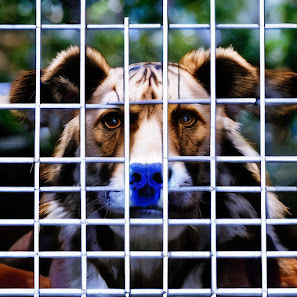Featured
- Get link
- Other Apps
Dream Interpretation Captive
For many people, dreams of captivity are both unnerving and perplexing. Whether you dreamed of being a captive or witnessing the captivity of animals, understanding what these dreams mean can help make sense of this bizarre experience. To explore this topic further, let's delve into the possible interpretations behind dreaming that you were held captive - from looking at its potential psychological origins to recognizing the spiritual symbols connected with such an image. So come on in, take a seat, and join us as we embark on an intriguing journey around this captivating concept!
Symbolism Behind Being a Captive in Your Dream
A dream of being held captive or imprisoning animals in your dream can carry significant symbolic meaning. Often, it represents feelings of being constrained in some area of your waking life, whether physically, emotionally, or mentally. The captive state reflects a lack of freedom or agency over your circumstances. Consider if there are situations in your life where you feel trapped or unable to escape, such as a restrictive job, relationship, or living situation. The dream could be a call to assert yourself and regain control over the aspects of your life that are making you feel bound against your will. Examining the details of your dream captive experience may reveal clues as to the root cause of these feelings of imprisonment. Working to resolve issues of lack of freedom and independence in your waking life may help alleviate the discomfort of such dreams.
The differences between Dreaming of Captivity of Yourself and Animals
The Psychological Effects This Type of Dream can Have on an Individual
Dreams of captivity or confinement can be unsettling and psychologically revealing. Our subconscious mind may use the metaphor of restraints or imprisonment to reflect feelings of lack of control or freedom in our waking lives. Perhaps responsibilities or anxiety weigh heavily on you, or an aspect of your life feels constrained or restricted. Analyzing the details of this dream and your emotional reactions can provide insight into what may feel out of your control or limited. Reflecting on how to address these constraints or increase autonomy in your daily life may help alleviate the distress or discomfort brought up by such a dream. Overall, dreams of captivity highlight the importance of a sense of agency and liberation - and the mind's way of urging us to pursue that freedom.
The Cultural Interpretations of Captivity Dreams From Jungian Theory to Shamanic Tradition
Dreams of captivity or imprisonment can represent feelings of restriction or helplessness in waking life. From a Jungian perspective, these dreams may reflect a lack of personal freedom or individuality. The dream could point to ways in which you are too rigidly adhering to social norms or external expectations. In Shamanic traditions, captivity dreams are interpreted as a calling from the Spirit to break free of mental or emotional bonds that are holding you back from your purpose or power. Examining the details of the dreamscape and your emotional experience within the dream can reveal insights into limiting beliefs, fears, or patterns that can be addressed through reflection or spiritual practices designed to nurture growth and liberation. By exploring the nuanced interpretations of captivity dreams, we can gain awareness of hidden obstacles and cultivate greater authenticity and agency in our lives.
Examples of Captivity Within Dreams and Their Meanings
Dreams of captivity can reflect a sense of powerlessness or lack of control in someone's waking life. For example, a woman who recently went through a difficult breakup and moved to a new city reported having repeated dreams of being held captive in a small, dark room. The feelings of loneliness and lack of direction in her new situation manifested in her subconscious as metaphorical captivity. A man who felt trapped in his unfulfilling job and worried about financial pressures dreamed of his dog being held captive in a cage and being unable to free him. Our minds often translate abstract anxieties or obstacles into more visceral and dramatic scenarios within the dream world.
How to Use the Information Gained From These Dreams for Personal Growth and Development
Dreams of captivity can be powerful and meaningful no matter who or what is being held captive. They can evoke deep memories, traumas, and repressed emotions that are buried in our subconscious. Captivity dreams can tell us a lot about our innermost feelings and how they relate to the world around us. By understanding the symbolism of these dreams, we can gain insight and use it to move forward in our lives. In Jungian theory, interpreters focus on the dreamer's psyches and what has been hidden for so long.
In contrast, Shamanic tradition views captivity dreams as a sign of transformation but can be experienced differently by different individuals. While such an experience may be incredibly frightening for some, for others, it may be an exhilarating journey toward self-discovery. The key is to understand their underlying message: a need to break free from your comfort zone to grow. Hopefully, this article has given readers enough resources to reflect on this type of dream and appreciate it as guidance rather than fear it as a danger.
- Get link
- Other Apps




Comments
Post a Comment